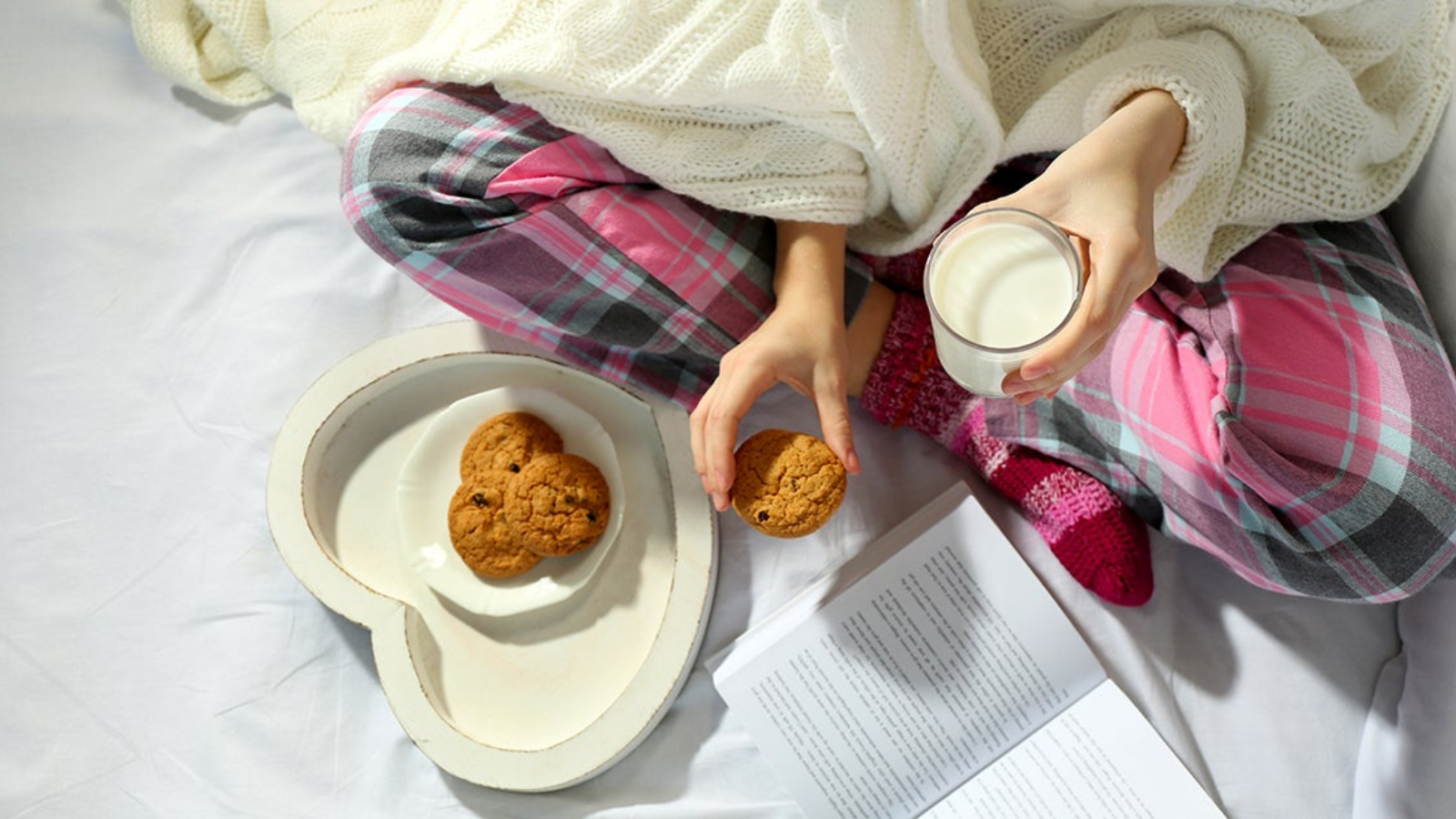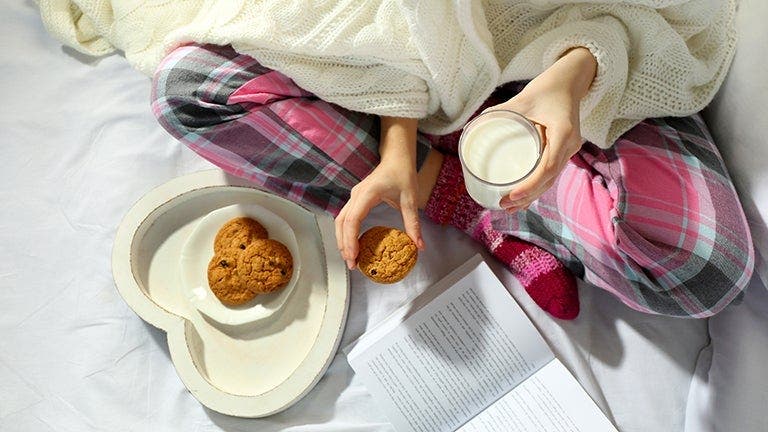The connection between sleep and overeating


The next time you’re tempted to sacrifice getting to bed on time for another (and another...) episode of your favourite show, consider this: clocking a measly few hours of sleep can do more than make you feel sluggish and grumpy the next day - it can also affect your waistline. That's because science shows a link between a lack of sleep and what (and how much) you eat.
The sleep goal to strive for is seven to nine hours a night, but one in three adults misses the mark. If you fall into that category, read on to learn more about how your snoozing affects your snacking, and what you can do to get your sleep back on track.
The sleep-snacking link
If you're in the mood for sweets after a bad night's sleep, you’re not alone. A study published by the Journal of the American Heart Association found that poor sleep quality was associated with eating more food and more sugary foods (hello, cookies for breakfast).
Another study from The American Journal of Clinical Nutrition saw similar findings: people who slept an average of 5.5 hours ate more carby, calorie-loaded snacks throughout the day, than those who snoozed for 8.5 hours each night.
A look at the science
Wondering why you can't say no to a doughnut after tossing and turning all night? It all starts with leptin, a hormone that helps suppress appetite by sending signals to your brain that you’re full.
Leptin helps combat overeating, but we only produce it with adequate sleep, says Dr. Monique May, MD, MHA, a board-certified physician and Medical Director of Sleep at Aeroflow Healthcare.
Here’s the play-by-play:
- During sleep, your brain releases proteins that stimulate leptin production in your fat cells and small intestine.
- Poor or inadequate sleep affects the amount of leptin that your body produces, so, when the body doesn’t get the leptin it needs, it can't control appetite and metabolism as effectively.
- On top of that, a lack of sleep causes your body to create excessive amounts of ghrelin, a hormone that stimulates appetite.
This sleep-deprivation combo (too little leptin and too much ghrelin) has been linked to higher BMIs. It doesn't help that when you’re exhausted from too little sleep, you may be less inclined to head out for your morning walk or afternoon yoga class. This can get you caught up in a frustrating and hard-to-break cycle of eating too much and moving too little.
How to get your sleep schedule back on track
Now that you know why a lack of sleep can throw wrenches at even the most well-conceived weight loss efforts, here’s how to get the zzz’s you need.
- Maintain a healthy sleep schedule. Getting under the covers at the same time each night signals to your brain that it’s time to go to sleep and causes your body to release the sleep hormone melatonin, which makes you feel drowsy and eases you off to dreamland. A healthy sleep schedule also requires getting up at the same time every morning, so set that alarm for the same time Monday through Sunday.
- Turn off your tech. The blue light emitted by laptops, tablets, mobile phones, and TVs suppresses the release of melatonin. Ideally, stop looking at bright screens two hours before heading to bed.
- Avoid late-night snacks. A small study in the Journal of Clinical Sleep Medicine found that people who eat late at night tend to have poorer, more disrupted sleep than those who have their last bite earlier in the evening.
- Get active. While it’s trickier to muster the enthusiasm to exercise when you’re dragging, it could be the very thing that helps you drift off to dreamland. A study published by Advances in Preventive Medicine found that those who exercised during the day were more likely to log quality sleep later that night than those who didn’t.
